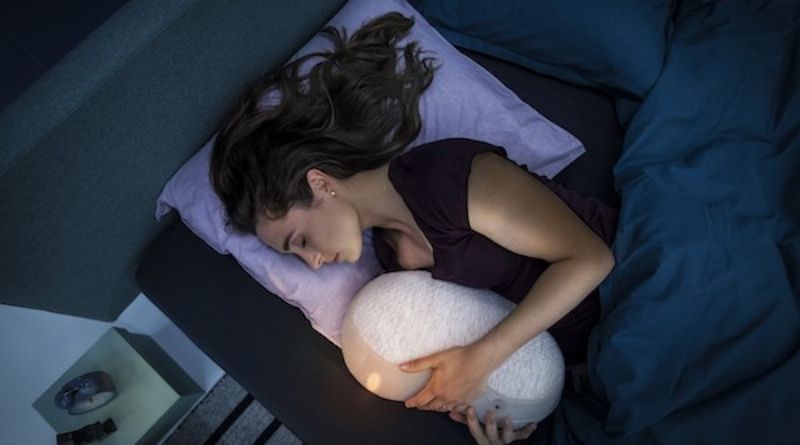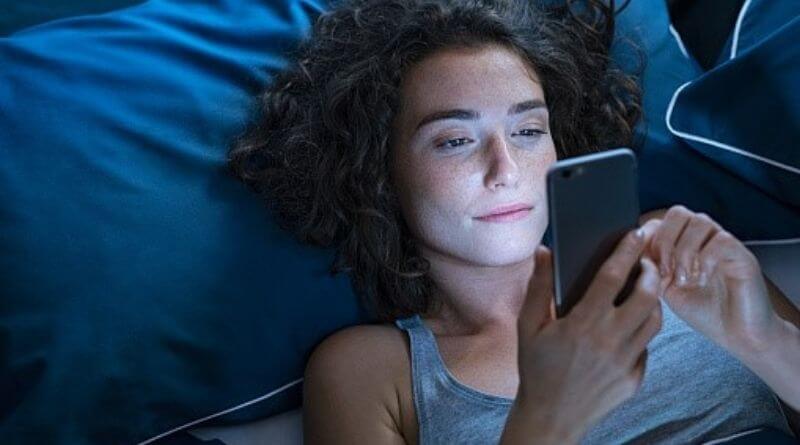Introduction
Did you know that the use of technology before bed can have some pretty scary effects on your sleep? According to recent studies, using electronic devices such as laptops, cell phones and even televisions can keep you from getting a good night’s sleep. In this blog post, we’ll explore some of the ways technology can impact your slumber and offer tips for how to get a better night’s sleep. So read on if you’re looking to catch more sleep.
Blue light that is emitted
You might have heard about”blue light filters” on your devices “blue light filter” on your mobile devices, a specific setting intended to limit the quantity of blue light that is emitted by your phone. This blue light isn’t blue in itself, it’s just the kind of light digital devices sporting display screens tend to emit. Blue light affects the body’s production of melatonin, the hormone that makes you feel tired. This is the reason why exposure to a lot of blue light from devices such as smartphones can make it difficult to fall asleep or remain asleep. You can also use melatonin pills.
Electromagnetic radiation
In addition to producing blue-colored light, modern devices emit electromagnetic radiation too like those that are transmitted by Wi-Fi signals. This has been proven scientifically and can affect our sleep just as blue light affects us by affecting the body’s melatonin balance, and making us wake up at night.
Emotional stimulus
The activities we play through our electronic devices could be keeping us awake, stimulating our brains to remain awake and focused. Gaming on video definitely provides an adrenaline rush, which keeps your brain active. Even activities that seem to be harmless are a reason to keep your brain in a heightened state, for example, engaging in online chats or watching a humorous video.
Noisy notifications
Many of us aren’t in the habit of shutting off notifications on our smartphones while we are asleep. While some may be capable of sleeping through the sound, the vibrating and bleeps could be disruptive and wake you up several times.
Technology can disrupt sleeping patterns in a range of ways. Even if you do not realize that your sleep has been disturbed, you’ll probably suffer from the following consequences of not getting enough quality sleeping time. Shut off or turn down notifications from your phone 30mins before bedtime so you don’t keep checking to see if there’s anything new.
The adverse effects of disrupted sleep
Lethargy
Being tired throughout the day even though you’ve had enough hours of rest is an indication that you aren’t receiving sufficient sleep, which results in fatigue and a general feeling of fatigue.
Trouble concentrating and a weaker memory
Sleep deprivation can have a profound impact on your mental health and cognitive abilities in addition. This can result in difficulty concentrating and staying focused, and also difficulties in remembering or recalling specific things. When you’re working or in school, this exhaustion will certainly have an impact on your productivity.
Irritable mood
Sometimes, you feel like everyone is causing you to be stressed for no reason at all. You probably didn’t get up to find yourself on the wrong side of the bed. You’re just not sleeping enough.
Control your usage of technology and sleeping patterns

Get some natural light before bed.
Sunlight helps reset your circadian rhythm, so getting some right before bed may facilitate better sleep. It should be about 10-30 mins for this to happen, but you can also try waking up earlier and letting the sun hit your eyes first thing in the morning as well.
Limit use of devices or apps before bedtime
This can help you from getting too emotionally enraptured by the content you’re looking at, which can keep your mind racing and interfere with sleep. If you want to read something
try a physical book instead of using an e-reader or app (the way e-readers/apps light up the page is closer to that of tablets/phones).
Keep a journal of your sleep
Recording your sleeping routines is the easiest way to boost your awareness level with regard to the impact of technology on your sleeping habits. It’s as simple as ensuring that you keep a journal of:
- What time do you get to bed?
- What is the earliest time you can get to sleep?
- Unusual sleep patterns such as awakening during the night
- What time did you wake up?
- What naps did you take?
- Anything that can affect sleep, such as drinking alcohol and caffeine
Just writing this information down can allow you to determine if you have enough sleep and determine the causes that are impacting your sleep. If you’re worried about using paper you can take advantage of the various sleep-tracking apps on smartphones! Sleep journal apps function similarly to the paper versions and can be even more convenient because you don’t need to carry around a book at all times or be concerned about running low on space. Clean stains from your mattress for better sleep.
Utilizing technology to help you to sleep better
Such pulse trackers are able to gather sleep-related information which will allow you to detect any issues that could possibly hinder you from getting the best quality sleep. The data collected from these devices will allow you to monitor the amount of quality sleep as opposed to light sleep that you’re experiencing to adjust your sleeping routine. Although this might appear complicated, wearing technology could be an easy solution to your sleep issues.
Conclusion
It’s often said that technology is slowly killing us, but few are aware of the chilling effects it has on our biology. Blue light emitted from phones and other devices impacts our circadian rhythm, making it difficult for the body to produce melatonin and enter deep sleep, electromagnetic radiation affecting your brain’s ability to regulate itself. Emotional stimuli from what we regularly see on our screens can affect how we feel about ourselves.









